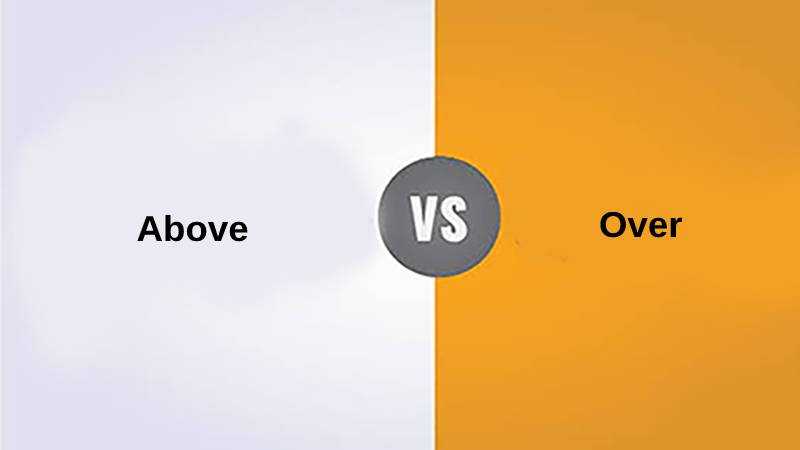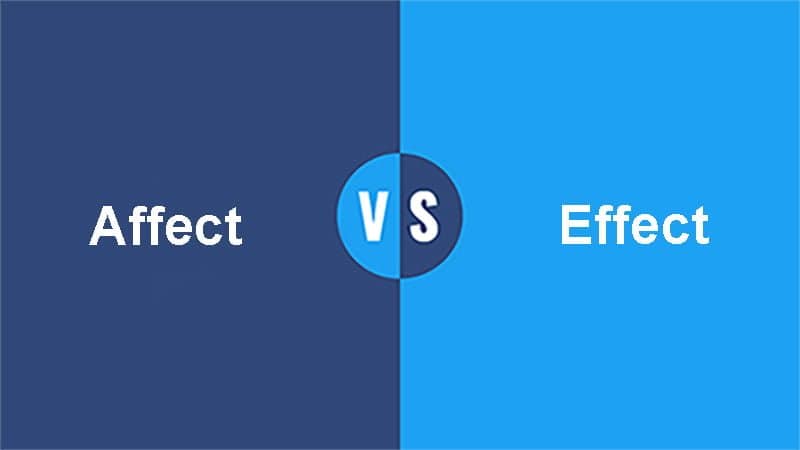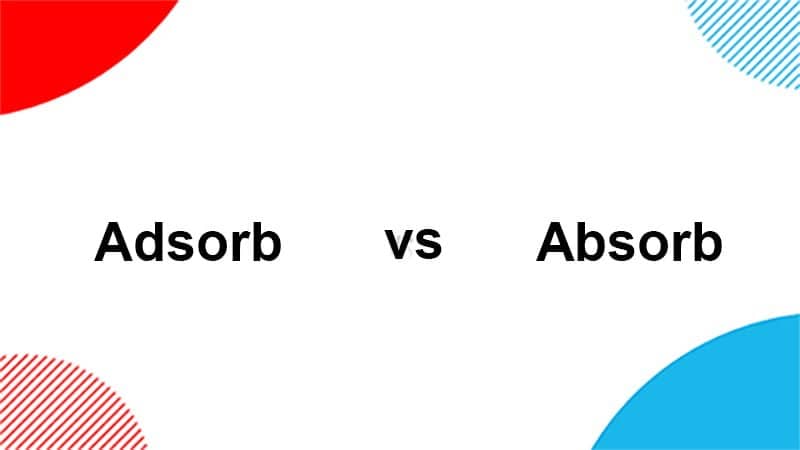Grammatical words like Above and Over are confused with one another as they both indicate the location of something. These two words are sometimes even used together.
Above and Over are two words that can seem to be having the same meaning, but they are different in many aspects.
Above vs Over
The main difference between Above and Over is the Above is used to denote something that is at a higher position from a person or a thing. On the other hand, Over is used to denote something that is exactly in the upwards direction.

Above can be used to denote an approximate position of something which is on a higher level. Besides, the word Above can also be used to the value of something being more than average. For example – The plane was flying above the clouds.
Over is a word that can be used to indicate the precise location or a position of something that is right on top of something. It can also be used to loosely indicate a place for which the distance is not always clear. For example – The book is kept over there. Another example can be – The book is kept over the counter.
Comparison Table Between Above and Over
| Parameters of comparison | Above | Over |
| Definition | Above is a word that is used to explain the position of a thing which is at a higher level. | Over is a word that is used to explain the position and the motion of a thing which is exactly upwards. |
| Denotes | The word “above” can only imply the location and position. | The word “over” can show location, position, and even motion. |
| Usability with numbers | Above is a term that can be seldom used with numbers. | Over is a word that can be used with numbers effectively in many cases. |
| Similar words | Words like “up above”, “overhead”, “on top”, “aloft”, “high up”, can be used in place of above. | Words like “atop” or “on” can be used as replacements for over. |
| Space between | When the word “above” is used, it may mean that there is space between the thing on the top and the thing below it. | When Over is used, it may or may not indicate that there is space between something on the top and the thing below it. |
| Direction | The only direction that the word “above” indicates is upwards. | The term “over” can be used to indicate any direction. For example – The tree is over there. |
What is Above?
Above is a term that is used both as an adverb and preposition. There are many examples when the word “above” is also used for comparison. It can even explain the difference in terms of measurements. Generally, the word “above” signifies a position higher than something. A few examples of the use of the Above is as below:
- The book is kept on the shelf above.
- Her room is on the floor above.
- The fan above was moving slowly.
However, when it comes to mathematical expression, the word “above” is used to show when a number is higher or more than the average. The use of the word “above” can be understood with the following examples:
- He’s scored 95%, which is above the rest of the students.
- The price of the car was above my budget.
- The cost of the shirt is above $100.
When it is about the word “above” being used in comparative terms, it refers to a rank that may be higher than others. It can also denote a cumulative comparison.
- His position was above the manager.
- His work is above all the performance so far.
- He considered his studies above sports.
What is Over?
The word “over” is very flexible in terms of usage. It is to be used to signify the location of something, or it is to be used simply in another context. The position of an object can be indicated by the word “over “, in comparison to another object.
Some examples that show that appropriate usage of the word “over” is as follows:
- The laptop is kept over the second shelf.
- The glass was over the counter.
- There were wires over the fence.
It can even be used to indicate the direction of something or someone. Besides all these, the word “over” can also be used to show the end of something. Apart from the usual usage of the word “over”, it can be used in other capacities.
The examples of other usages of the word “over” are as below:
- He passed over the plate to her.
- He decided to leave once the conversation was over.
- He kept repeating himself over and over again.
Main Differences Between Above and Over
- The term “above” mainly tends to be used only when a location or position of something is to be specified. On the other hand, Over can be useful for many situations. It also indicates the location or position of something.
- The term “above” tends to be vague. While the word “over” tends to be more accurate and precise.
- Use of the term “above” can be done only in a few cases, like when it is about explaining a higher number or value. Whereas, using the word “over” is very common to explain a higher number or value.
- There has to be space between two things if the term “above” is used. Whereas, when it comes to the word “over,” there is no space, as it is to be used to describe a thing on top.
- Synonyms for Above include “overhead,” “aloft,” and “on top.” On the other hand, the synonyms for Over include “atop” or “on.”
Conclusion
The terms “above” and “over” can cause a lot of confusion as they may be used instead of each other. Hence, it can seem that both words have a similar meaning or are synonyms to each other.
However, there are many differences when the proper use of both words is concerned.











